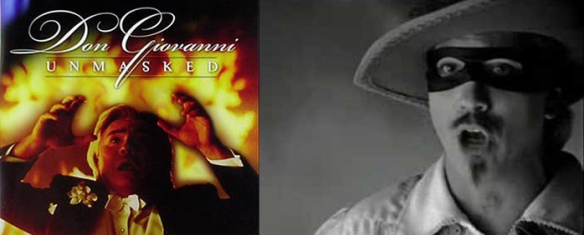Better known for his movie soundtracks for directors like Martin Scorsese and David Cronenberg, academy award winning composer Howard Shore it seems has a bit of a passion for vocal music as well. With a string of movie scores under his belt since the late 1970’s it is probably for his dense and richly orchestrated film scores for the Lord of the Rings trilogy of films by Peter Jackson that he is best known though a personal favourite of mine is his hallucinogenic free jazz score to one of my favourite movies of all time, David Cronenberg’s Naked Lunch, a dystopian semi biographical reworking of the infamous William Burroughs Novel.

Howard Shore
He first work for the stage was an opera adaptation of another Cronenberg film, The Fly which was premiered at the Théâtre du Châtelet in Paris in 2008. The opera was in many ways an homage to the film for which Shore had also written the soundtrack back in 1986.
Less well known is that Shore has also written a number of vocal song cycles for the concert hall and like myself seems to be more attracted to the deeper female voice composing two song cycles for mezzo-soprano. The most recent called ‘L’Aube’, a song cycle for mezzo-soprano and orchestra was written as a tribute to Canadian mezzo Maureen Forrester and was premiered on November 20th 2017.

The premiere of L’Aube, A Tribute To Maureen Forrester.
An earlier work also written for mezzo is ‘A Palace Upon the Ruins’. A song cycle which is strangely sung in German considering Shore is a Canadian composer and the libretto was written by his partner Elizabeth Cotnoir.
A Palace Upon the Ruins has none of the sweeping orchestration of the film scores that made his name and is very much in the style of German lieder by composers like Gustav Mahler and Franz Schubert (which might explain the German text but this is still quite odd in my estimation anyway). The musical accompaniment at times is noticeably sparse and has, also like lieder, quite a dark and melancholic feel. This lack of density in the accompaniment does have the advantage of letting the vocal lines, which are at times quite delicate shine through quite beautifully and a good mezzo is always beautiful to listen to.
There are six songs in the cycle and each has the title of an element or weather condition, Fog, Ice, Water, Cloud, Rain and Sun. If You like Shore’s film scores this may not be for you but if German art song is your thing then you will probably find this work quite interesting.

Mezzo soprano Jennifer Johnson Cano.
A recording of the cycle was made with American mezzo Jennifer Johnson Cano and was released on a CD with various other musical selections by Shore as ‘A Palace Upon the Runes, Selected Works’. Some of the other pieces on the CD are quite interesting. ‘Peace‘ which is a setting of a text by Eleanor Roosevelt and ‘The Garden‘ both have an attractive traditional sacred music feel and these are followed by a selection called ‘Six Pieces‘ which seem to be quite ambient and unconnected pieces but interestingly four of them are performed by the RTÉ Concert Orchestra, one of them ‘V‘ being an interesting vocal piece sung by Clara Sanabras (yes, another mezzo!). The final track ‘Catania‘ is a quite interesting short solo piano piece performed by Lang Lang.

As I mentioned earlier, probably not for the Howard Shore soundtrack fan but interesting none the less and it shows another side of his compositional interests and talents.












